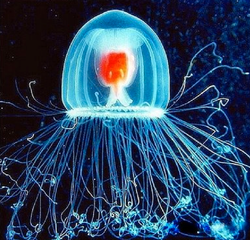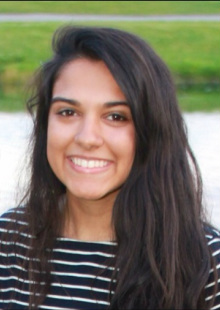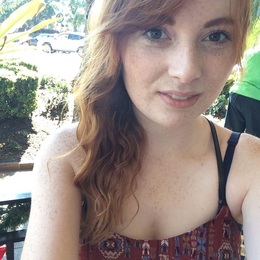|
1/29/2014 0 Comments #BlackGirlsRock By: Nora Dagher It is common knowledge that the American entertainment industry holds a Euro-centric view of beauty. Very often young girls are bombarded with images of blonde, straight haired, stick thin, fair skinned images of women in magazines, TV, and in film. These images perpetuate the idea that beauty is only one-note and put down women who do not meet these unattainable standards. For women of color, it is an even tougher daily struggle. These same standards of beauty tell African women to bleach their skin with whitening cream, east Asian women to get eyelid surgery, and Arab women to permanently straighten their natural curls. Simply Google-ing the term “beautiful” generates a plethora of images of white women with no diversity or gradient of skin tone present. The Black Girls Rock! Foundation, founded in 2006, is an organization dedicated to the empowerment of young women of color. The Black Girls Rock! Awards are now featured on BET as a way of recognizing role models, encouraging teachings of self worth, and emphasizing the talents of women of color unseen in mainstream American media. When all young black girls or women of color see on TV are misrepresentations of who they are, they start to internalize that negative (or lack of) portrayal. The Black Girls Rock! Foundation does good work for young women searching for themselves in every avenue of media and it is vital for our youth that more organizations follow suit.
0 Comments
1/24/2014 0 Comments A market for organs: an exercise in the free market or an exploitation of the poor? By: Cassi Kirkland Since the advent of transplant surgery in 1954, the problem of finding organ donors has become more and more apparent. Most often, family members of the patient donate organs like kidneys or livers, but there are complicated compatibility tests which can prevent such family member donations. In these cases, those waiting for kidneys or livers must add their names to the waiting list. In 2012, 95,000 Americans were on the waiting list for a kidney, but only 16,500 kidney transplant operations were performed. In an article in the Wall Street Journal, Gary Becker and Julio Elias make a case for a market for organs. They argue that this would drastically decrease the wait time, and allow the supply of organs like the kidney to equal the demand of those on the waitlist. In theory, the idea of a market for organs makes sense: more people will donate if they are compensated for their time and organs. But this begs the question: who will be the primary suppliers in this new market? You could argue that only those in desperate need of money would supply their organs, and what would that do the divides between rich and poor? It’s possible that such a system would lead us on a path to some dystopian science fiction future, where human worth is measured in dollars. The most desperate in society could end up being unethically exploited for their body parts, while the rich benefit. On the other hand, Becker and Elias envision a market that prevents such exploitation of the poor. They advocate for measures like a three month wait time between the decision to donate and the actual surgery, access to counselors, and compensation for both the donated organ and the recovery time from a transplant surgery. They cite Iran’s market for kidneys as an example that such a system would work. In Iran living donors can sell their kidneys for about $4,000 and the waiting time for a kidney donation has been “largely eliminated.” In the end, it might come down to choosing the lesser of two evils. We either accept a system where nearly 780,000 people have a drastically lower quality of life on a transplant list, or bring in a new system that could potentially target poor members of society. image: http://nphumour.blogspot.com/2013/09/transplant-charitys-gala-silent-auction.html 1/24/2014 0 Comments Women in STEM Fields Spotlight: Professor Kathleen Nolta! By: Nora Dagher If you're pre-med or a Chemistry, Biochemistry, or Biology major, chances are you've had a class with Professor Kathleen Nolta. In a world of weeder classes, competitive students, grade point averages and general all-around stress, Professor Nolta is well known for putting her students at ease in the challenging world of Organic Chemistry. Professor Nolta is notorious for presenting her material in a clear-cut manner, devoting the majority of her time to her students. A “Professor Profile” in the Michigan Daily reveals that Chemistry Lecturer Kathleen Nolta has never been formally trained as a teacher and took up teaching because raising her children prevented her from being in a lab where she could do research. Nolta states in the article: “'I took an odd job teaching in Chicago and loved it and just fell into it!'” Energetic Nolta reveals that she considers teaching her only hobby and she's never planned a lecture. As a student in her Biochemistry lab, I can confidently say that it is a refreshing pleasure to have a class with Kathleen Nolta. She makes a complicated subject much more digestible, treats her students like individuals instead of numbers in the class, and knows how to modify her teaching style when things aren't clear. UMich students — consider Kathleen Nolta when you schedule your next class, you won't be disappointed! (image link: http://umurj.org/interviews/research-perspectives-dr-kathleen-nolta/)  By: Cassi Kirkland Watch television or browse the media for about one hour and you’ll see at least one advertisement for anti-aging cosmetics. There are firming creams, wrinkle repair serum, pore vanishers and even emerging lines for men. We are a culture obsessed with youth, and we go to extremes to extend our lives and look young. But with all of our technology, we have not come up with something to rival the power of Turritopsis nutricula, a species of jellyfish called “immortal” by scientists. While we struggle to make ourselves live longer and look younger, Turritopsis regenerates on its own as a response to stressful environments. In a crisis, an adult jellyfish undergoes transdifferentiation, a process by which cells transform into different types. This process is similar to functions of our stem cells, but with much more unlimited possibility. Sure, the word “immortal” is enticing, but what does it really mean? Looking at this in terms of the human lifespan, this is the equivalent of developing backwards into a fetus and then being reborn again. Would you still be the same person? The answer is complicated. Yes, your cells would be genetically identical to the adult cells you were born from, but what about your personality, memories, and thoughts? Jellyfish are much simpler creatures, without brains and central nervous systems, so applying this “immortality” to humans isn’t so straightforward. Perhaps a more realistic concern is how these jellyfish could potentially take over the ocean. They have traveled all around the world, mostly through ship ballast water in trade barges. They are even showing different traits in different environments, which begs the question: how will marine diversity be affected by an organism that doesn’t die? As of now, little is known about how Turritopsis nutricula knows the “secret of immortality,” and even less is known about how this biological phenomenon can benefit humans. But is immortality something humans should chase? Those of us who spend countless dollars trying to look young and live longer would probably say yes, but considering ethical and philosophical questions might lead us to a different conclusion. (image link: http://wilsonkhoo.files.wordpress.com/2013/02/immortal-jellyfish2.png) Congratulations to our new additions to the UMichigan Scientista Business Board. The Freshman Representatives for the Class of 2017 are as follows:  Natalie Nagpal Natalie is a current member of the University of Michigan Pre-Medical Club and the the Michigan Biology Academy (M-Bio), a branch of the M-STEM Academies at U-M. Natalie was the founder and president of the Hispanic Student Union at Huron High School. In addition, Natalie served as a Student Leader in Ann Arbor's Neutral Zone S.E.E.D. (Students Educating Each other about Diversity) group. Natalie has volunteered for Guatemala's House of Common Hope and for the Indian Home Builder Project. A violinist for twelve years, Natalie served as the concert mistress of the Ann Arbor Huron Philharmonic Orchestra. She is a former participant of the Michigan Math and Science Scholars program. Natalie has earned numerous awards and recognitions for the research she has conducted in the botanical sciences, including the Pfizer's Young Investigator Award and recognition from the Michigan Botanical Club, the East Michigan Chapter of the Air and Waste Management Association, the University of Michigan Chapter of Sigma Xi: the Scientific Research Society, and the American Meteorological Society. Sheeba Pawar  Sheeba is a current member of the University of Michigan Pre-Medical Club, the international co-ed service organization Circle K, and MedLife, a secular, volunteer-run global health organization at U-M. A 2012 AP Scholar with Distinction, Sheeba served as President of the Huron Chapter of Business Professionals of America, the largest academic club at Huron High School. In addition, Sheeba was a member of the Rowing Team and served as Secretary of the Key Club at her high school. Throughout high school, Sheeba volunteered as a research assistant in pathology and opthalmology labs, and earned numerous awards and recognitions for her research. Sheeba earned an honorable mention Grand Award, a First Place Science and Society Award, and a Certification of Recognition from the American Statistics Association for her analysis of pseudogene expression in cancer cells at the 2012-2013 Southeast Michigan Science Fair. Sheeba also earned Second Place in the category of Health and Medicine at the 2013 Michigan Science and Engineering Fair, an affiliation of Intel ISEF, the world’s largest international pre-college science competition. Sheeba's bioinformatics research on kinases and pancreatic cancer has received recognition from the AACR (American Association for Cancer Research) at their Special Conference in 2012, where she participated in a poster symposium. Tabassum Mohibi Tabassum is involved with SHEI Magazine, Dance Marathon, and Global Brigades, the world's largest student-led global health and sustainable development organization. During high school, Tabassum co-founded the Tri-City Chapter of CRY (Child Rights and You), led the Muslim Youth of Mid-Michigan organization as its President, and served as Treasurer of the Model United Nations at Heritage High School where she also pursued and earned an IB (International Baccalaureate) diploma. Tabassum has led numerous service endeavors in her community including helping to organize the American Cancer Society's Relay for Life event, serving as a hospital volunteer, and tutoring women at a homeless shelter to help them achieve their GED. Tabassum was an active member of the Young Democrats Chapter and the Multicultural Club at her high school as well as the Indian Association of East Central Michigan (IAECM) Youth Group. A lobbyist at the 2012 Michigan Youth in Government Conference, Tabassum was selected for and attended the National Youth Leadership Forum on Medicine and the MASC/MAHS State Leadership Conference. Annie McCloskey Annie is a member of the Alpha Chi Sigma Profesisonal Chemistry Fraternity at the University of Michigan. During high school, Annie served as President and Secretary of the Newsome High School Chemistry Club and as a Team Leader at A Kid’s Place, a shelter for abused and neglected children. Annie was a member of the National Honor Society, where she served as Captain and Fundraising Organizer of their Relay for Life Team. She was also a member of the Latin Honor Society and the Rho Kappa Social Studies Honor Society for her outstanding academics in these areas. |
WELCOME, UMICH SCIENTISTAS!
CAMPUS PICS
WHAT'S NEWUPCOMING EVENTSPAST POSTS
October 2022
SORT BY TAG |
The Scientista Foundation, Inc. All Rights Reserved © 2011-2021 | Based in NY | [email protected]
The Network for Pre-Professional Women in Science and Engineering
The Scientista Foundation is a registered 501(c)(3) -- Donate!
The Network for Pre-Professional Women in Science and Engineering
The Scientista Foundation is a registered 501(c)(3) -- Donate!


 RSS Feed
RSS Feed